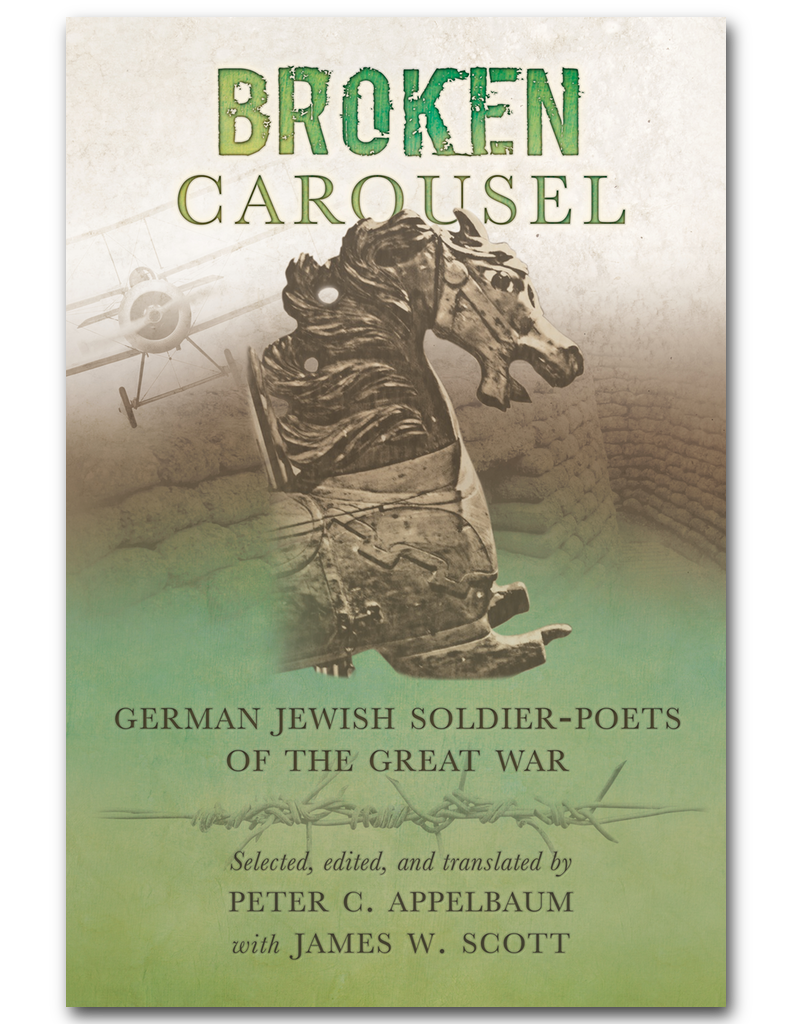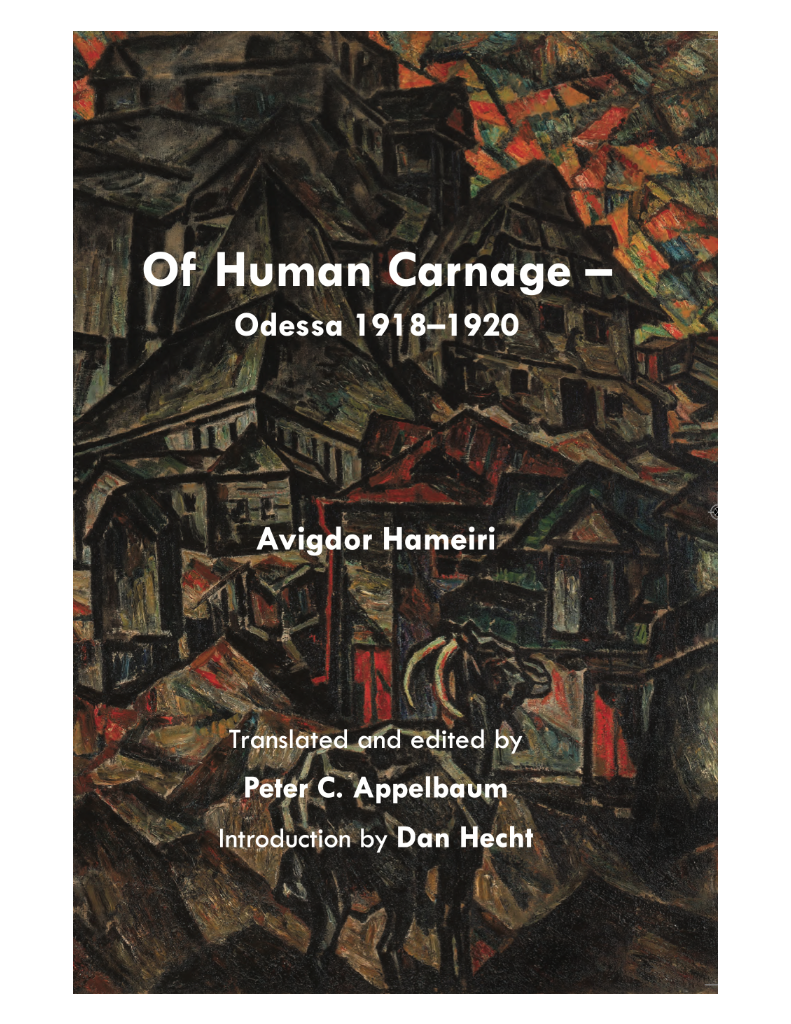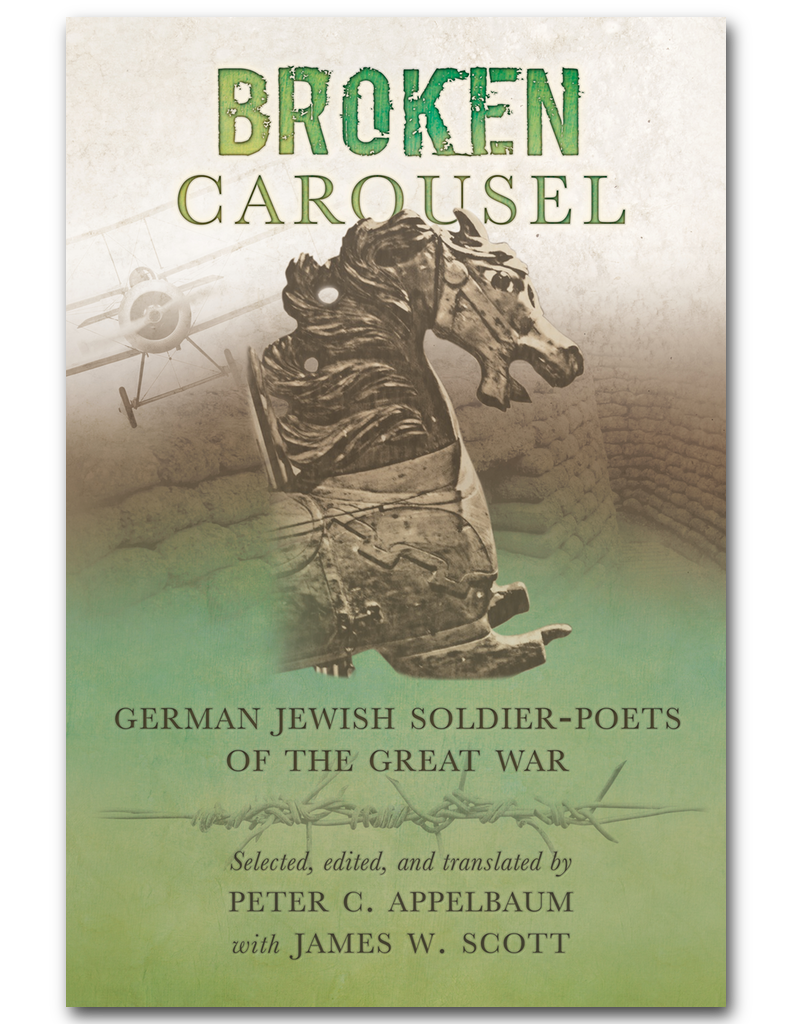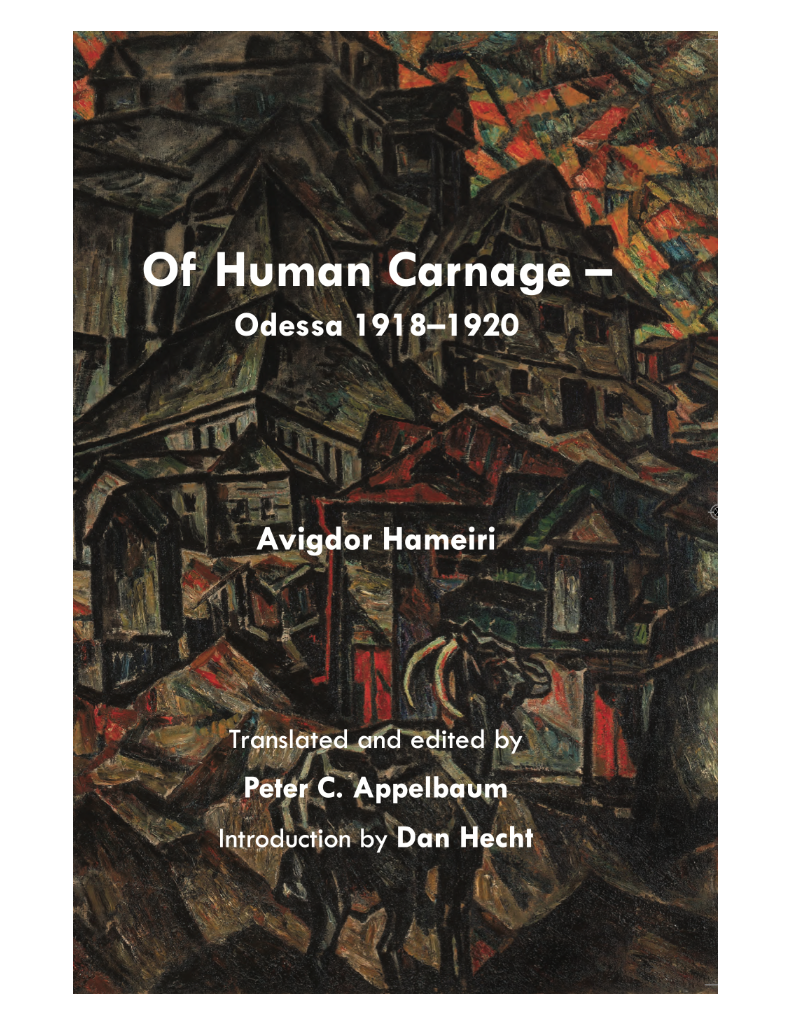Products
{"id":8117124890918,"title":"Broken Carousel","handle":"broken-carousel","description":"\u003cp\u003e\u003cimg src=\"https:\/\/cdn.shopify.com\/s\/files\/1\/0798\/5689\/files\/Stone_Tower_100x100.png?v=1546616956\" alt=\"\" data-mce-fragment=\"1\" data-mce-src=\"https:\/\/cdn.shopify.com\/s\/files\/1\/0798\/5689\/files\/Stone_Tower_100x100.png?v=1546616956\"\u003e\u003c\/p\u003e\n\u003cp\u003e\u003cspan style=\"color: #1d501d;\"\u003e\u003cstrong\u003eISBN 9781942614265\u003c\/strong\u003e\u003c\/span\u003e\u003c\/p\u003e\n\u003cp\u003e\u003cspan style=\"color: #1d501d;\"\u003e\u003cstrong\u003eAuthors Peter C. Appelbaum and James W. Scott\u003c\/strong\u003e\u003c\/span\u003e\u003c\/p\u003e\n\u003cp\u003e\u003cspan style=\"color: #1d501d;\"\u003e\u003cstrong\u003ePages 403\u003c\/strong\u003e\u003c\/span\u003e\u003c\/p\u003e\n\u003cp\u003eThe Tragedy of the First World War shaped the twentieth century. War changes loves in ways otherwise unimaginable and creates generational legacies of loss. Giving voice to the traumas and experiences of war is something that is frequently best expressed through the words of poets who can speak with one voice for many soldiers. Their words convey emotions, sentiments, and experiences that are often too difficult for others to express.\u003c\/p\u003e\n\u003cp\u003eThere are many familiar names among the poets of war, but most of them are British - Wilfred Owen, Robert Graves, Rupert Brooke, Siegfried Sassoon, Isaac Rosenberg, Ivor Gurney, and a score of others. What is largely absent and overlooked is the perspective of soldiers from the Central Powers. This volume provides English and German readers the poetry of German Jewish soldiers. Among the poets presented are:\u003c\/p\u003e\n\u003cul\u003e\n\u003cli\u003eImmanuel Saul\u003c\/li\u003e\n\u003cli\u003eWalther Heymann\u003c\/li\u003e\n\u003cli\u003eLudwig Franz Meyer\u003c\/li\u003e\n\u003cli\u003eAlfred Lichtenstein\u003c\/li\u003e\n\u003cli\u003eSamuel Jacobs\u003c\/li\u003e\n\u003cli\u003eLeo Sternberg\u003c\/li\u003e\n\u003cli\u003eHartwig Heymann\u003c\/li\u003e\n\u003cli\u003eJacob Diamant \u003c\/li\u003e\n\u003cli\u003eErnst Toller\u003c\/li\u003e\n\u003cli\u003eKurt Tucholsky\u003c\/li\u003e\n\u003c\/ul\u003e\n\u003cp\u003eBreathtaking and heartbreaking, the poems show that the traumas of war know neither boundaries nor national allegiance. \u003c\/p\u003e\n\u003cp\u003e\u003cspan style=\"color: #1e511e;\"\u003e\u003cstrong\u003ePeter C. Appelbaum, MD, PhD, is Emeritus Professor of Pathology, Pennsylvania State University College of Medicine. He is the author, editor, and translator of numerous books on Jewish military history and literature, including Loyalty Betrayed, Prayers After the Slaughter (co-editor and co-translator), and Loyal Sons.\u003c\/strong\u003e\u003c\/span\u003e \u003c\/p\u003e\n\u003cp\u003e \u003c\/p\u003e","published_at":"2020-09-09T16:17:53-04:00","created_at":"2023-02-01T15:12:31-05:00","vendor":"Stone Tower Press","type":"Book","tags":["history","James W. Scott","Peter C. Appelbaum","poetry","war","World War I"],"price":4995,"price_min":4995,"price_max":4995,"available":true,"price_varies":false,"compare_at_price":null,"compare_at_price_min":0,"compare_at_price_max":0,"compare_at_price_varies":false,"variants":[{"id":44350069047590,"title":"Default Title","option1":"Default Title","option2":null,"option3":null,"sku":"9781942614265","requires_shipping":true,"taxable":true,"featured_image":null,"available":true,"name":"Broken Carousel","public_title":null,"options":["Default Title"],"price":4995,"weight":751,"compare_at_price":null,"inventory_management":"shopify","barcode":"9781942614265","requires_selling_plan":false,"selling_plan_allocations":[]}],"images":["\/\/jplbooks.com\/cdn\/shop\/products\/BrokenCarousel-front.png?v=1675282351"],"featured_image":"\/\/jplbooks.com\/cdn\/shop\/products\/BrokenCarousel-front.png?v=1675282351","options":["Title"],"media":[{"alt":null,"id":32829794877734,"position":1,"preview_image":{"aspect_ratio":0.772,"height":1024,"width":791,"src":"\/\/jplbooks.com\/cdn\/shop\/products\/BrokenCarousel-front.png?v=1675282351"},"aspect_ratio":0.772,"height":1024,"media_type":"image","src":"\/\/jplbooks.com\/cdn\/shop\/products\/BrokenCarousel-front.png?v=1675282351","width":791}],"requires_selling_plan":false,"selling_plan_groups":[],"content":"\u003cp\u003e\u003cimg src=\"https:\/\/cdn.shopify.com\/s\/files\/1\/0798\/5689\/files\/Stone_Tower_100x100.png?v=1546616956\" alt=\"\" data-mce-fragment=\"1\" data-mce-src=\"https:\/\/cdn.shopify.com\/s\/files\/1\/0798\/5689\/files\/Stone_Tower_100x100.png?v=1546616956\"\u003e\u003c\/p\u003e\n\u003cp\u003e\u003cspan style=\"color: #1d501d;\"\u003e\u003cstrong\u003eISBN 9781942614265\u003c\/strong\u003e\u003c\/span\u003e\u003c\/p\u003e\n\u003cp\u003e\u003cspan style=\"color: #1d501d;\"\u003e\u003cstrong\u003eAuthors Peter C. Appelbaum and James W. Scott\u003c\/strong\u003e\u003c\/span\u003e\u003c\/p\u003e\n\u003cp\u003e\u003cspan style=\"color: #1d501d;\"\u003e\u003cstrong\u003ePages 403\u003c\/strong\u003e\u003c\/span\u003e\u003c\/p\u003e\n\u003cp\u003eThe Tragedy of the First World War shaped the twentieth century. War changes loves in ways otherwise unimaginable and creates generational legacies of loss. Giving voice to the traumas and experiences of war is something that is frequently best expressed through the words of poets who can speak with one voice for many soldiers. Their words convey emotions, sentiments, and experiences that are often too difficult for others to express.\u003c\/p\u003e\n\u003cp\u003eThere are many familiar names among the poets of war, but most of them are British - Wilfred Owen, Robert Graves, Rupert Brooke, Siegfried Sassoon, Isaac Rosenberg, Ivor Gurney, and a score of others. What is largely absent and overlooked is the perspective of soldiers from the Central Powers. This volume provides English and German readers the poetry of German Jewish soldiers. Among the poets presented are:\u003c\/p\u003e\n\u003cul\u003e\n\u003cli\u003eImmanuel Saul\u003c\/li\u003e\n\u003cli\u003eWalther Heymann\u003c\/li\u003e\n\u003cli\u003eLudwig Franz Meyer\u003c\/li\u003e\n\u003cli\u003eAlfred Lichtenstein\u003c\/li\u003e\n\u003cli\u003eSamuel Jacobs\u003c\/li\u003e\n\u003cli\u003eLeo Sternberg\u003c\/li\u003e\n\u003cli\u003eHartwig Heymann\u003c\/li\u003e\n\u003cli\u003eJacob Diamant \u003c\/li\u003e\n\u003cli\u003eErnst Toller\u003c\/li\u003e\n\u003cli\u003eKurt Tucholsky\u003c\/li\u003e\n\u003c\/ul\u003e\n\u003cp\u003eBreathtaking and heartbreaking, the poems show that the traumas of war know neither boundaries nor national allegiance. \u003c\/p\u003e\n\u003cp\u003e\u003cspan style=\"color: #1e511e;\"\u003e\u003cstrong\u003ePeter C. Appelbaum, MD, PhD, is Emeritus Professor of Pathology, Pennsylvania State University College of Medicine. He is the author, editor, and translator of numerous books on Jewish military history and literature, including Loyalty Betrayed, Prayers After the Slaughter (co-editor and co-translator), and Loyal Sons.\u003c\/strong\u003e\u003c\/span\u003e \u003c\/p\u003e\n\u003cp\u003e \u003c\/p\u003e"}

Broken Carousel
$49.95
ISBN 9781942614265 Authors Peter C. Appelbaum and James W. Scott Pages 403 The Tragedy of the First World War shaped the twentieth century. War changes loves in ways otherwise unimaginable and creates generational legacies of loss. Giving voice to the traumas and experiences of war is something that is frequently best expressed through the word...
{"id":8117124956454,"title":"Of Human Carnage","handle":"of-human-carnage","description":"\u003cp\u003e\u003cimg data-mce-fragment=\"1\" alt=\"\" src=\"https:\/\/cdn.shopify.com\/s\/files\/1\/0798\/5689\/files\/Stone_Tower_100x100.png?v=1546616956\" data-mce-src=\"https:\/\/cdn.shopify.com\/s\/files\/1\/0798\/5689\/files\/Stone_Tower_100x100.png?v=1546616956\"\u003e\u003c\/p\u003e\n\u003cp\u003e\u003cspan style=\"color: #1e541d;\"\u003e\u003cstrong\u003eAuthor Avigdor Hameiri \u0026amp; Peter C. Appelbaum\u003c\/strong\u003e\u003c\/span\u003e\u003c\/p\u003e\n\u003cp\u003e\u003cspan style=\"color: #1e541d;\"\u003e\u003cstrong\u003eISBN 9781733892452\u003c\/strong\u003e\u003c\/span\u003e\u003c\/p\u003e\n\u003cp\u003e\u003cspan style=\"color: #1e541d;\"\u003e\u003cstrong\u003ePages 152\u003c\/strong\u003e\u003c\/span\u003e\u003c\/p\u003e\n\u003cp\u003e\u003cspan style=\"color: #000000;\"\u003eIn forty-four vignettes or scenes as if from a documentary film, Avigdor Hameiri provides a vivid account of the pogroms that occurred in Ukraine and Russian between 1918 and 1921, drawing from his experiences during the Civil War in Odessa after the Russian Revolution and the end of the First World War. As a Jewish soldier he faced endemic antisemitism from the Austro-Hungarian officers. The Eastern Front was relatively fluid and even civilians were caught up in the fighting. Ironically, the Russian abuse of the Jewish populations was so brutal that they looked upon the Austro-Hungarians as saviors. Hameiri writes of the violence against Jews at this time that easily surpassed the earlier pogroms of the 1880s and 1903-1906. Caught in the cross-fire of civil war, Jews in Ukraine suffered organized slaughter and carnage from soldiers and civilians of multiple factions. \u003c\/span\u003e\u003c\/p\u003e\n\u003cp\u003e\u003cspan style=\"color: #000000;\"\u003e\u003cem\u003e\"Peter Appelbaum's vivid and robust translation finds a compelling English voice for these dispatches from a time and place where terrifying chaos inspired stories filled with 'Jewish laughter...basted with tears.'\"\u003c\/em\u003e\u003c\/span\u003e\u003c\/p\u003e\n\u003cp\u003e\u003cspan style=\"color: #000000;\"\u003e\u003cstrong\u003eBoyd Tonkin, Former Literary Editor of\u003cem\u003e The Independent \u003c\/em\u003e- Author of The 100 Best Novels in Translation\u003c\/strong\u003e\u003c\/span\u003e\u003c\/p\u003e\n\u003cp\u003e\u003cspan style=\"color: #1f5129;\"\u003e\u003cstrong\u003eAvigdor Hameiri was a Hebrew poet (the first Poet Laureate of Israel), novelist, editor and translator. Hameiri was born in Davidhaza, Carpatho-Ruthenia (then Hungary but present-day Ukraine). In 1916 he was captured by the Russians while serving as an Austro-Hungarian officer on the Russian Front, imprisoned in Siberia, and released in 1917 after the October Revolution. In 1921 he immigrated to Palestine, joined the staff of the daily \u003cem\u003eHaaretz\u003c\/em\u003e, and edited several journals. Hameiri published a number of novels, short stories, and poetry collections that gave literary expression to his war experiences, the Third Aliyah, and later the Holocaust. His other works of fiction include the important war novel Ha-Shiga'on ha-Godel (The Great Madness - a new translation by Peter C. Appelbaum, forthcoming 2021).\u003c\/strong\u003e\u003c\/span\u003e\u003c\/p\u003e\n\u003cp\u003e\u003cspan style=\"color: #1f5129;\"\u003e\u003cstrong\u003ePeter C. Appelbaum, MD, PhD, is Emeritus Professor of Pathology, Pennsylvania State University College of Medicine. After more than four decades in infectious disease research, Dr. Appelbaum is spending his retirement years writing and translating books on modern-day Jewish military history. He is the author of \u003cem\u003eLoyalty Betrayed\u003c\/em\u003e and \u003cem\u003eLoyal Sons\u003c\/em\u003e (Vallentine-Mitchell, 2014) and, together with James Scott, has translated an anthology of war essays and poems by Kurt Tucholsky (\u003cem\u003ePrayer after the Slaughter\u003c\/em\u003e, Berlinica, 2015).\u003c\/strong\u003e\u003c\/span\u003e\u003c\/p\u003e","published_at":"2020-09-10T10:15:18-04:00","created_at":"2023-02-01T15:12:36-05:00","vendor":"Stone Tower Press","type":"Book","tags":["Avigdor Hameiri","history","military history","Peter C. Appelbaum"],"price":1995,"price_min":1995,"price_max":1995,"available":true,"price_varies":false,"compare_at_price":null,"compare_at_price_min":0,"compare_at_price_max":0,"compare_at_price_varies":false,"variants":[{"id":44350069178662,"title":"Default Title","option1":"Default Title","option2":null,"option3":null,"sku":"9781733892452","requires_shipping":true,"taxable":true,"featured_image":null,"available":true,"name":"Of Human Carnage","public_title":null,"options":["Default Title"],"price":1995,"weight":238,"compare_at_price":null,"inventory_management":"shopify","barcode":"9781733892452","requires_selling_plan":false,"selling_plan_allocations":[]}],"images":["\/\/jplbooks.com\/cdn\/shop\/products\/OfHumanCarnage-Front.png?v=1675282356"],"featured_image":"\/\/jplbooks.com\/cdn\/shop\/products\/OfHumanCarnage-Front.png?v=1675282356","options":["Title"],"media":[{"alt":null,"id":32829795729702,"position":1,"preview_image":{"aspect_ratio":0.772,"height":1024,"width":791,"src":"\/\/jplbooks.com\/cdn\/shop\/products\/OfHumanCarnage-Front.png?v=1675282356"},"aspect_ratio":0.772,"height":1024,"media_type":"image","src":"\/\/jplbooks.com\/cdn\/shop\/products\/OfHumanCarnage-Front.png?v=1675282356","width":791}],"requires_selling_plan":false,"selling_plan_groups":[],"content":"\u003cp\u003e\u003cimg data-mce-fragment=\"1\" alt=\"\" src=\"https:\/\/cdn.shopify.com\/s\/files\/1\/0798\/5689\/files\/Stone_Tower_100x100.png?v=1546616956\" data-mce-src=\"https:\/\/cdn.shopify.com\/s\/files\/1\/0798\/5689\/files\/Stone_Tower_100x100.png?v=1546616956\"\u003e\u003c\/p\u003e\n\u003cp\u003e\u003cspan style=\"color: #1e541d;\"\u003e\u003cstrong\u003eAuthor Avigdor Hameiri \u0026amp; Peter C. Appelbaum\u003c\/strong\u003e\u003c\/span\u003e\u003c\/p\u003e\n\u003cp\u003e\u003cspan style=\"color: #1e541d;\"\u003e\u003cstrong\u003eISBN 9781733892452\u003c\/strong\u003e\u003c\/span\u003e\u003c\/p\u003e\n\u003cp\u003e\u003cspan style=\"color: #1e541d;\"\u003e\u003cstrong\u003ePages 152\u003c\/strong\u003e\u003c\/span\u003e\u003c\/p\u003e\n\u003cp\u003e\u003cspan style=\"color: #000000;\"\u003eIn forty-four vignettes or scenes as if from a documentary film, Avigdor Hameiri provides a vivid account of the pogroms that occurred in Ukraine and Russian between 1918 and 1921, drawing from his experiences during the Civil War in Odessa after the Russian Revolution and the end of the First World War. As a Jewish soldier he faced endemic antisemitism from the Austro-Hungarian officers. The Eastern Front was relatively fluid and even civilians were caught up in the fighting. Ironically, the Russian abuse of the Jewish populations was so brutal that they looked upon the Austro-Hungarians as saviors. Hameiri writes of the violence against Jews at this time that easily surpassed the earlier pogroms of the 1880s and 1903-1906. Caught in the cross-fire of civil war, Jews in Ukraine suffered organized slaughter and carnage from soldiers and civilians of multiple factions. \u003c\/span\u003e\u003c\/p\u003e\n\u003cp\u003e\u003cspan style=\"color: #000000;\"\u003e\u003cem\u003e\"Peter Appelbaum's vivid and robust translation finds a compelling English voice for these dispatches from a time and place where terrifying chaos inspired stories filled with 'Jewish laughter...basted with tears.'\"\u003c\/em\u003e\u003c\/span\u003e\u003c\/p\u003e\n\u003cp\u003e\u003cspan style=\"color: #000000;\"\u003e\u003cstrong\u003eBoyd Tonkin, Former Literary Editor of\u003cem\u003e The Independent \u003c\/em\u003e- Author of The 100 Best Novels in Translation\u003c\/strong\u003e\u003c\/span\u003e\u003c\/p\u003e\n\u003cp\u003e\u003cspan style=\"color: #1f5129;\"\u003e\u003cstrong\u003eAvigdor Hameiri was a Hebrew poet (the first Poet Laureate of Israel), novelist, editor and translator. Hameiri was born in Davidhaza, Carpatho-Ruthenia (then Hungary but present-day Ukraine). In 1916 he was captured by the Russians while serving as an Austro-Hungarian officer on the Russian Front, imprisoned in Siberia, and released in 1917 after the October Revolution. In 1921 he immigrated to Palestine, joined the staff of the daily \u003cem\u003eHaaretz\u003c\/em\u003e, and edited several journals. Hameiri published a number of novels, short stories, and poetry collections that gave literary expression to his war experiences, the Third Aliyah, and later the Holocaust. His other works of fiction include the important war novel Ha-Shiga'on ha-Godel (The Great Madness - a new translation by Peter C. Appelbaum, forthcoming 2021).\u003c\/strong\u003e\u003c\/span\u003e\u003c\/p\u003e\n\u003cp\u003e\u003cspan style=\"color: #1f5129;\"\u003e\u003cstrong\u003ePeter C. Appelbaum, MD, PhD, is Emeritus Professor of Pathology, Pennsylvania State University College of Medicine. After more than four decades in infectious disease research, Dr. Appelbaum is spending his retirement years writing and translating books on modern-day Jewish military history. He is the author of \u003cem\u003eLoyalty Betrayed\u003c\/em\u003e and \u003cem\u003eLoyal Sons\u003c\/em\u003e (Vallentine-Mitchell, 2014) and, together with James Scott, has translated an anthology of war essays and poems by Kurt Tucholsky (\u003cem\u003ePrayer after the Slaughter\u003c\/em\u003e, Berlinica, 2015).\u003c\/strong\u003e\u003c\/span\u003e\u003c\/p\u003e"}

Of Human Carnage
$19.95
Author Avigdor Hameiri & Peter C. Appelbaum ISBN 9781733892452 Pages 152 In forty-four vignettes or scenes as if from a documentary film, Avigdor Hameiri provides a vivid account of the pogroms that occurred in Ukraine and Russian between 1918 and 1921, drawing from his experiences during the Civil War in Odessa after the Russian Revolution...


